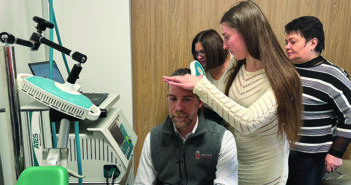Should doctors participate in capital punishment?
News reports indicate that a doctor (unidentified) was in charge of the recent tragic botched execution in Oklahoma.
Some people, including many doctors (according to surveys), believe that since a court has determined guilt and sentenced the guilty person to death that a doctor’s skills can make the process less painful. The argument is that, just as patients with terminal, untreatable disease have the right to medical assistance for relief of excruciating pain, even if sedation and death are the price of such relief, so do persons sentenced to death. But capital punishment is not a disease. It is a conscious choice by society and by the persons administering the justice system. And there is a “treatment”—commutation to life imprisonment.
Capital punishment may be legal but it may not be morally acceptable for doctors to participate in it. In Nazi Germany from 1933 to 1945, doctors performed “experiments” that were nothing more than torture. Doctors killed people under the guise of looking for “treatments” and in the quest for racial purity. All of these actions were legal. The Nazi government approved and sponsored these horrors.
The old adage “first do no harm” is ancient, dating to the time of Hippocrates (c. 400 BCE). Obviously none of the subjects of the Nazi doctors gave consent for what was done to them. The notion of a rigorous doctrine of informed consent and the right of a competent adult to refuse any or all medical treatment is relatively new. In fact, it derives from the Nazi atrocities. In 1947, after the trials of the Nazi war criminals, a statement, the Nuremberg Doctrine, delineated the right of patients to refuse medical interventions. This has evolved to our current standard of patient autonomy.
These moral principles—“Do not intentionally inflict harm” and “Recognize and enforce patient autonomy”—are basic to our medical care system. The American Medical Association’s Code of Medical Ethics, recognized by most states and courts as the authoritative standard of professional behavior, prohibits physician participation in execution in any fashion.
Some of the states that employ capital punishment require that a doctor be present, though a state cannot force a specific doctor to be there. Several guarantee the participants anonymity. Courts have said that laws requiring a doctor to be in attendance trump the guidelines of the AMA Code. Although doctors routinely are disciplined by state licensing boards for various ethical transgressions, no doctor has been disciplined for participation in an execution.
Anesthesiologists have special skills in sedation and would be the logical choice to facilitate an execution. The American Board of Anesthesiology has formally adopted the AMA position. It is ABA policy that participation in an execution may result in revocation of board certification. This would effectively end the career of the anesthesiologist.
Doctors treat all in need of care when able to do so. We condemn the government of Myanmar for forcibly denying medical care to its Muslim population and the Syrian government for forcibly denying medical care to the rebels. Is actively doing harm to a person at the behest of the government different than the (forcible) denial of care by the government?
Doctors can, and usually do, refuse to participate in unethical activities, even if they are legal. Whether capital punishment, without the involvement of the medical system, is desirable is a separate question.
Public policy should not request or require that doctors violate their basic ethical tenets by participating in executions, torture, etc. The law should not interfere with state licensing boards’ ability to review participation in executions in their consideration of a doctor’s adherence to standards of professional behavior. The identity of persons working in our legal system should not be hidden.
As members of a free society, we all should advocate for, and would benefit from, laws supporting this approach. It does not serve our society well if its legal system contravenes the ethical duties of physicians to “do no harm” and to respect autonomy.
This op-ed originally appeared in The Providence Journal on May 8, 2014.



